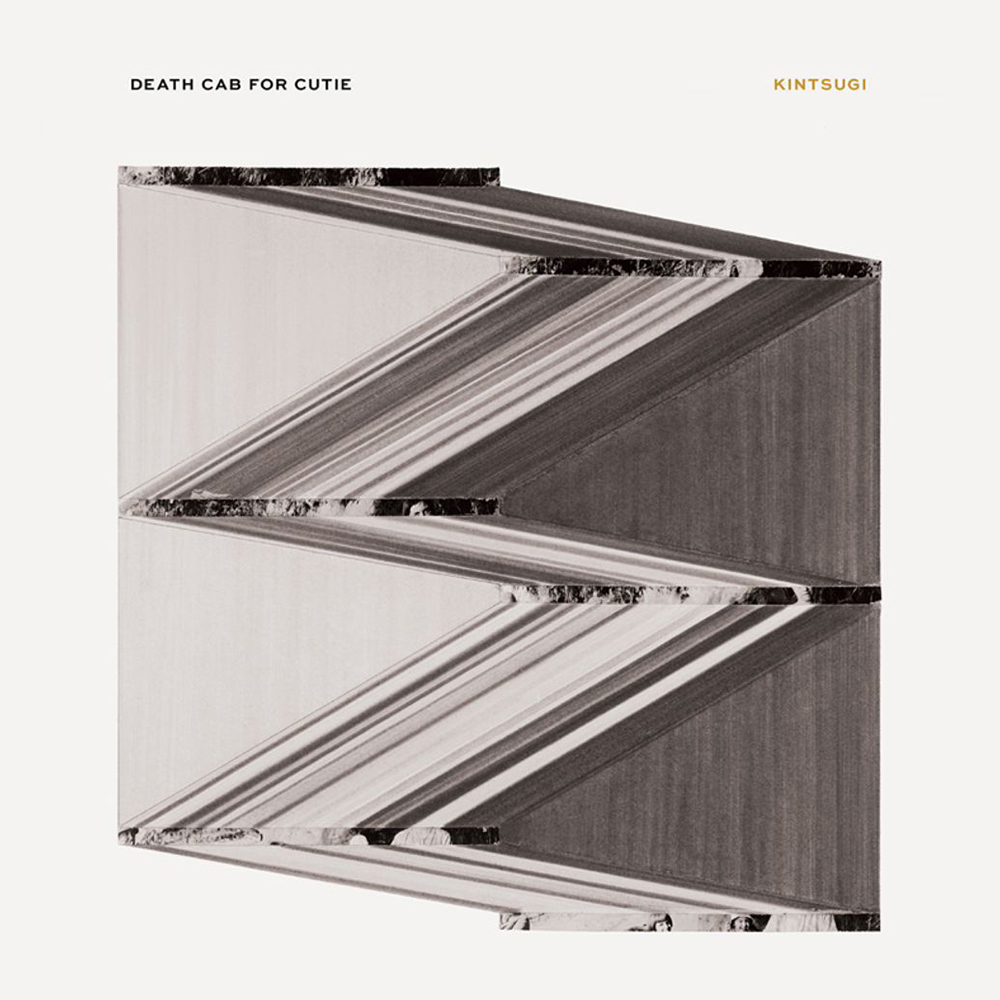I have always existed in this odd state of flux with Death Cab for Cutie’s career. I remember hearing Ben Gibbard tell me “If you feel just like a tourist in the city you were born, then it’s time to go,” sometime in the spring of 2011, over a year from when I would actually graduate high school and get out of town. I was not there when The O.C. catapulted the band’s popularity during the “Transatlanticism” era, eventually leading to their major label success. I would like to think that in some alternate Pacific Northwest life, I would have been on top of my game and caught one of their early performances at The Crocodile Club in support of their debut, “Something About Airplanes,” but in this life, I was just getting out of kindergarten. All of this, of course, is meaningless. What matters, and what has always mattered, has been this band’s ability to create timelessness, regardless of where you are when these records meet you.
Kintsugi not only excels in its status as an instant classic — it proves the bands formidability. Working with both extreme levels of vulnerability juxtaposed with unparalleled confidence, the record is as layered and multi-faceted as fans have come to expect. Facing the loss of founding member and chief producer Chris Walla last summer, Death Cab clearly did not hesitate to swim rather than sink. Walla’s touch on the record is heartbreaking — he was present for recording, and stepped back from his usual seat in the production chair — creating syncopated, interweaving guitar textures that harken back to a more refined version of their second album, my personal favorite in their catalogue.
Gibbard is not only writing some of the best lyrics of his career here, he is delivering them more passionately than we have seen him in years. Gone is any room to criticize his arguably removed vocal style present on “Codes and Keys.” His driving chorus on “The Ghosts of Beverly Drive” is a testament to what this band executes so well — raw, beautifully crafted emotional responses to hardship. In addition, the sounds he works with on the record become incredibly varied on the second half, namely in “Good Help (Is So Hard to Find),” where his falsetto actually finds some danceable groove, a throwback to his Postal Service days.
Structurally, the record also proves the rejuvenation found in every other aspect of Death Cab’s sound. Nick Harmer’s bass lines are full and inventive as ever, adding texture to “El Dorado,” a second half standout with swirling guitar leads. Jason McGerr uses the same percussive creativity that made “Transatlanticism” such a landmark record in the first place, exploring syncopation and powerful driving rhythms. The real gems, however, lie in the subtle details throughout “Kintsugi.” The sparse synth during the chorus of “Black Sun” and the synth behind “Everything’s a Ceiling” find the band exploring different territories sonically, possibly as a natural result of creating their first record with an outside producer, let alone one as legendary as Rich Costey.
I would be amiss to not mention that “Kintsugi” is a break-up album, and a brilliant one at that. Ben Gibbard’s high profile divorce with actress Zooey Deschanel was impossible to ignore, and the speculation surrounding whether or not he would respond lyrically has been answered throughout the record. “Was I in your way when the cameras turned to face you? / No room in frame for two.” Gibbard touches on themes of insignificance, bitterness, loss and memory in the devastating way we have come to expect, but in a way that never bores. Gibbard’s honesty is frank and essential to his art, and he manages to toe the balance between confessional poetry and brilliant narrative. A lesser artist would stray towards exaggeration, or hyperbole, but Gibbard’s struggle comes across authentic and real. “Kintsugi” is a testament to healing through art, moving on through the perfection of a craft. Let us just hope Death Cab does not let up anytime soon.







